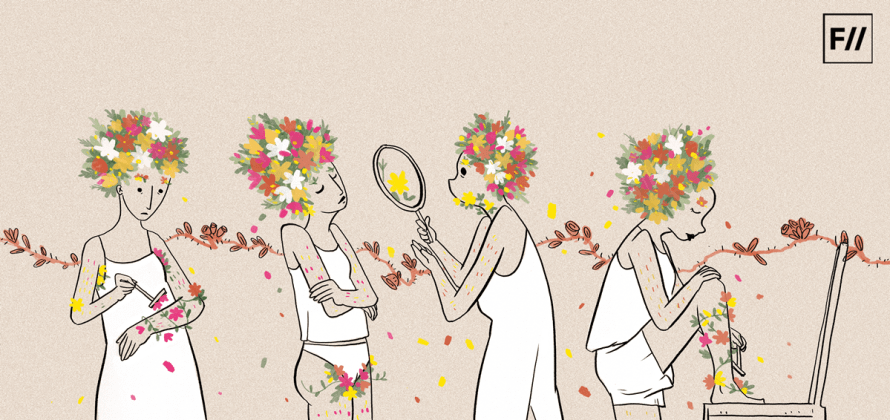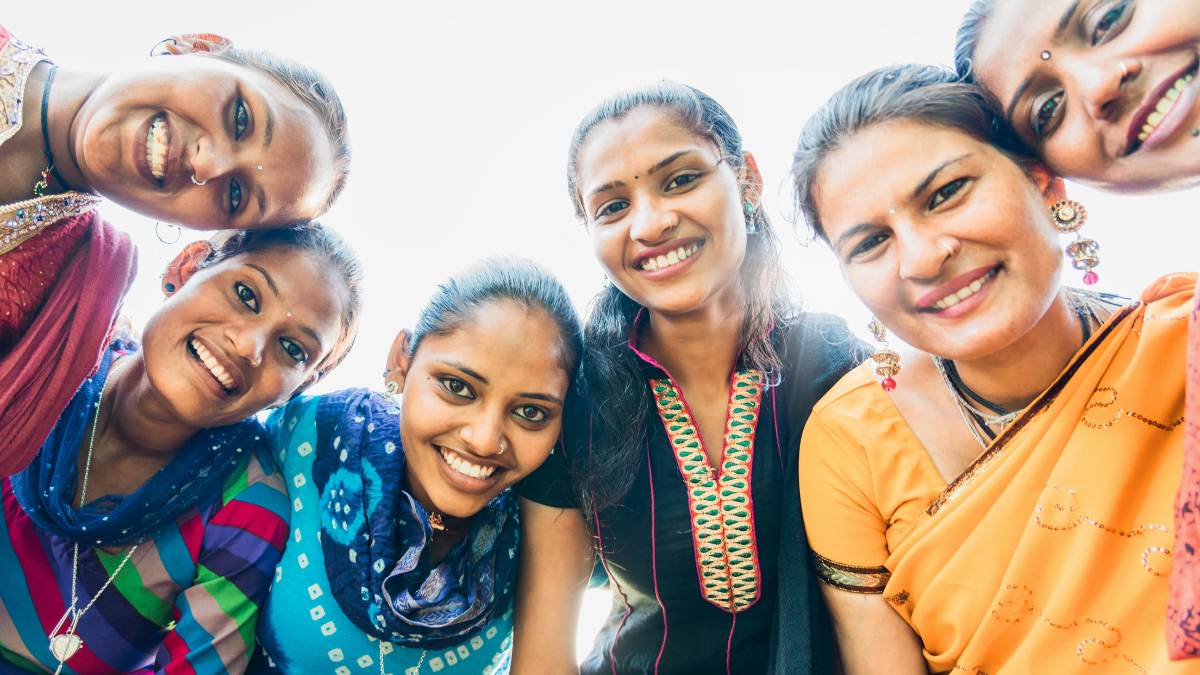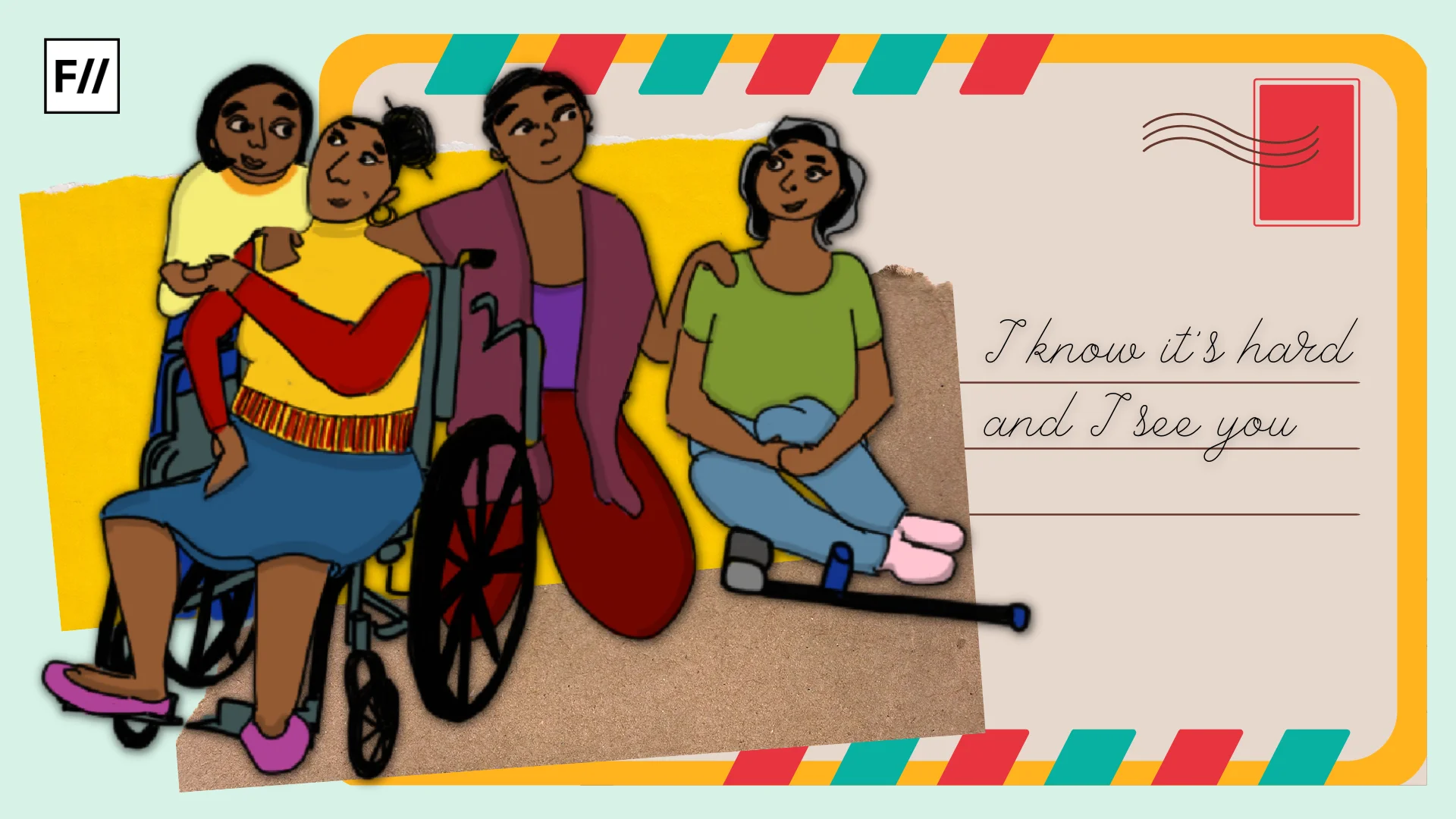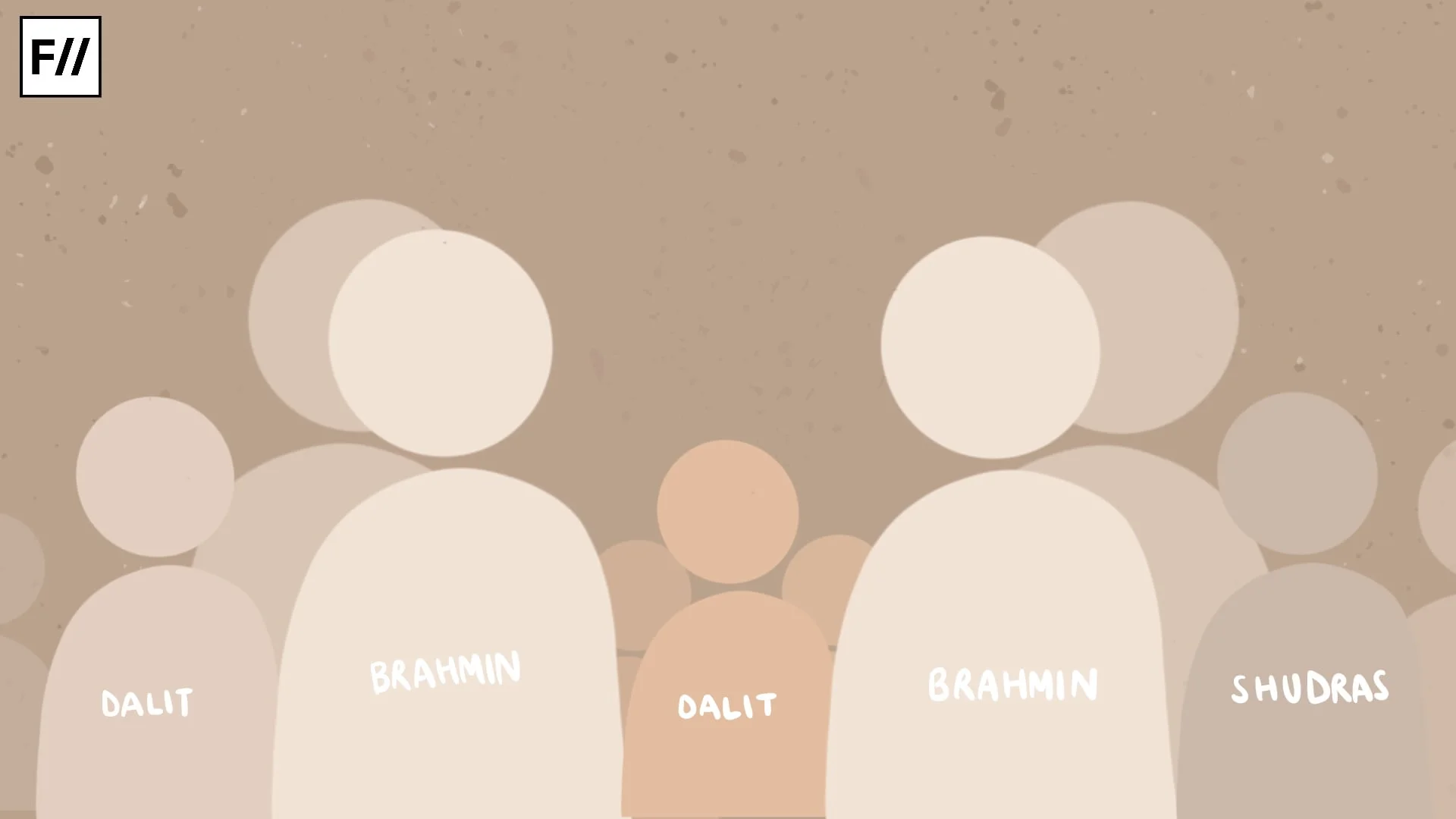Editor’s Note: FII’s #MoodOfTheMonth for October, 2021 is Navigating Complex Emotions. We invite submissions on coping with complicated feelings, throughout this month. If you’d like to contribute, kindly email your articles to sukanya@feminisminindia.com
Ever since I understood that my body was something I had to, and should be conscious of (thank you, societal conditioning!), I was confused by it. I had heard many people say things about my body over the years, but I believed that as a strong feminist girl, I could not care less about the things that were said fleetingly.
Surely, my teeth which were very crooked, my eyes which were too small for my face, and my figure which was gravely disproportionate held no water in front of my fabulous, charming personality. Now while this was something I was very sure of theoretically, in practice, I spent too much time in front of mirrors questioning every curve of my body. And not in an adorable way, but in a hyper critical, ‘i-hate-my-body‘ way.
My body presented to me the first paradox in my feminism that I would encounter. How could I claim to be a feminist if I was not proud of the body I was born in? My advocacy as a sixth grader seemed to fail when it came to my own self. Crying over my crooked teeth, I felt like punching my feminism in the face. It made me uncomfortable, because I knew that I should know better. Me, who grew up watching interviews of Angela Davis and Gloria Steinem, I should not have this problem at all!

But little did I know that my problems with my body were just beginning. When I progressed to eleventh grade, I went to a doctor’s office with swollen fingers, and came out with a diagnosis that would change me forever. I was diagnosed with something called Ehlers-Danlos Syndrome, Type-III, an illness which makes my joints hyperextend and ache for days on end. It seemed like my problems with my body were scientifically established, and my one argument for still loving my body – that it allowed me to live and breathe – failed, because it seemed like my body was failing at all it was supposed to do.
The strangest thing about hating your body is that all it takes is often a single word, a single observation, a single remark to leave you feeling insecure for the rest of your life. Hate is something so easily acquired when it comes to our own bodies. Love, that is a far tougher game. For me, acquiring love came with accepting my illness, realising that no matter how much I try to remove it from my body with every form of change, it is a fact I can never overcome
Self-love is an incredibly difficult task, but it becomes all the more impossible to practice it when you find that your body is in an altogether different dimension to everyone else’s. A whole new galaxy opened up to me once I was diagnosed, and the most common residence in this galaxy was the doctor’s waiting room. Nearly every doctor I visited made it a point to link my weight and my illness together, advising me to lose weight if I wanted to try to live a moderately pain-free life.
Maybe spice up my looks with some braces to feel better, and try a new hairstyle. However, not one of them stopped to actually evaluate what giving this advice to a teenager meant. It meant excessive internalisation, and a solidification of the belief that her body needed changing.

Changing every bit of my body became a project for me, so much so that I had to re-introduce myself to several people in my life, and I felt proud of what I had achieved. Prouder than I felt of any achievement I had ever had, prouder than I felt of actually living through a painful and dangerous illness. I had no crooked teeth, no messy hair, and my height and weight were as proportionate as they could be. But, my pain still remained. My illness still plagued me and my body. I still seemed to be unable to love it, although it seemed perfect enough on paper.
Also read: ‘Hey, You Have Gained So Much Weight!’
I found new things to be bothered by – my chin, my nose, my eyebrows, new things to perfect. As I read more and more feminist literature and spoke more about my politics, I felt all the more disjointed from it. Remember the feminist paradox that plagued me? Well, I had become the paradox.
While I still have not reached the form of radical self-love I always get inspired by after speaking to feminists in my life, what I am moving towards is more of a gentle tolerance, which I am learning is much, much better than absolute hatred. I am understanding that radical self-love can be a journey too, and not just a destination I am expected to already be at
The strangest thing about hating your body is that all it takes is often a single word, a single observation, a single remark to leave you feeling insecure for the rest of your life. Hate is something so easily acquired when it comes to our own bodies. Love, that is a far tougher game. For me, acquiring love came with accepting my illness, realising that no matter how much I try to remove it from my body with every form of change, it is a fact I can never overcome.
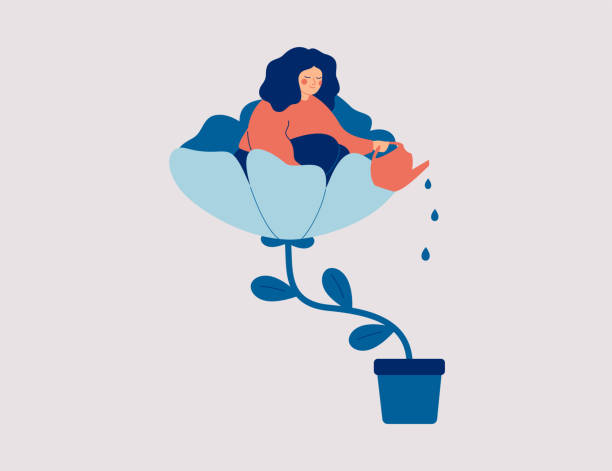
My joints will always hyperextend, my muscles will always be weaker than everyone else’s, my bones will always be brittle. What I needed was not getting over my illness, or trying to fix it. What I needed was to trust my body to get me through each day, with as much grace and support I can give it – something no doctor had ever told me about.
And as I began to slowly give myself a lot more allowance than I ever had for the imperfections caused by my illness, I began to make allowances for other imperfections too. For the double chin that I have, for how my eyes always seem too small for my face, for how my hair is always frizzy no matter how much serum I waste on it.
While I still have not reached the form of radical self-love I always get inspired by after speaking to feminists in my life, what I am moving towards is more of a gentle tolerance, which I am learning is much, much better than absolute hatred. I am understanding that radical self-love can be a journey too, and not just a destination I am expected to already be at.
I hope to unabashedly be madly in love with myself one day, as unapologetically as possible, but after a decade of hating every bit of my body, I am willing to compromise and settle for friendship at the moment.
Also read: Self Love Even When It Seems Impossible
Samidha Mathur is a corporate lawyer working in the practice area of Insolvency and Bankruptcy, and a disability rights activist who serves as one of the editors of Revival Disability Magazine, a magazine where young folx speak of their disabilities and illnesses and how they impact their interactions with the world. She is an ardent animal lover, who is the happiest dreaming about her future house filled with loads of foster dogs and cats. Samidha can be found on Instagram and Twitter.
Featured Image: Shreya Tingal for Feminism In India
